How Ecuador Says Goodbye...
CUENCA, ECUADOR –
October 13-17
Steve: Cuenca, Cuenca, Cuenca…oh right! After making all the proper preparations we headed out of Banos with our
now defunct laptop in tow (with all due respect to the hostel Maria Princesa, I
think they are cursed: 1) the hard drive on our laptop took a nose dive; 2)
another traveler who I shall not name had a friendship-ending fight at said
hostel; and 3) we met a Kiwi while in Cuenca who had his passport stolen in the
dorms at the Princesa Maria. Poor little princess…). As our infinite luck would
have it, our bus left 15 minutes late which in effect made us miss our transfer
in Riobamba by mere minutes. In all honesty a two-hour wait at the terminal
wasn’t that bad but our long-hauls across Ecuador haven’t been the smoothest.
We were of course a bit disheartened knowing that we didn’t have the disposal
of our communication gadget but hey, people traveled for years without
computers or cell phones right? Anyways, we got our connecting bus to Cuenca
and made it there without any further complication. I should note that the
drive south across the Ecuadorian highlands was absolutely beautiful—idyllic
farms pocked the rolling green hills and we weaved our way through mountain
roads overlooking craggy valleys that cradled numerous rivers. There are some
places where you want to get from point A to point B and there is nothing to
see on the way. This was not one of them.
After a quick phone
call at the Cuenca bus terminal we were soon greeted by our hosts for the
weekend, Dorian (cousin of our Guayaquil Couchsurfing host, Maria Rosa) and his family. We loaded our bags in
the trunk and hopped in the back of his little red Chevy, sharing the back with
his 9-year-old son Juan Francisco. As we moved our way through the city we
exchanged pleasantries which included an introduction to his wife Diana in the
front seat; it took us about fifteen minutes on our little tour to realize that
we had a sixth passenger on board. In Diana’s lap was their newest addition to
the family, 1-year-old Pedro, who Leah would promptly fall in love with (and
become irrationally jealous of his long eyelashes) (Leah: this kid looked liked something out of a Japanese anime cartoon--expressive, over-sized eyes coated in eyelashes that damn near reached the end of his nose. It was unreal). In keeping with Maria
Rosa’s incredible skills as a host, Dorian promptly took us on a whirlwind car
tour all over the colonial town that is Cuenca (the actual name of the town is
Santa Ana de Los Cuatros Rios de Cuenca). It is a friendly and vibrant town,
impeccably clean due to the municipality’s investment in trash collection, full
of history and culture. In the southeastern corner of the city are the ruins of
the Incan city of Tomebamba which sits along the river of the same name; as the
city’s full name implies, there are four rivers that weave through different parts
of the city creating a watery backdrop to an already impressive highland
landscape. Dorian and his family carted us along the various old town sights,
pointing out the numerous impressive churches, historical sites and points of
interest. Before taking us to their new home they even stopped off so that we
could pick up a pizza to make sure we were fat and happy before bed (I should
add that Diana even supplemented this with some eggs and rice…we really were
fat and happy…que rico!)
The next morning we had
breakfast with the family and discussed our plans for the day. Dorian would
give us a more in depth tour around the center of town while Diana and the kids
did a little bit of shopping; after that we were going to join them in their
weekend ritual of visiting Diana’s parent’s farm (theirs is a qinta, which is a smaller version of a finca) where all the aunts, uncles,
cousins and the like gather for lunch—we were at once excited and daunted at
meeting potentially 50+ of her extended family. As we would soon find out this
was to be one of the most enjoyable and memorable moments from our visit to
Cuenca.
The first part of our
day entailed walking with Dorian around the central park and visiting some of
the historical sites that he has enjoyed during his life in Cuenca as well as some sights that he had yet to
see. We first visited the aptly named Catedral Viejo (“old church”), an antique
church with sculptures and frescoes dating back to the 16th century.
We had a tour guide that blazed through his monologue (even Dorian said “mas despacio” (“slower please!”)) but
luckily our Spanish has been improving so we caught most of what he said…just
don’t ask me to repeat it all now. The refurbished church/museum was filled
with ornate trimmings and intricate touches. One of the most interesting items
were the four chapels dedicated and paid for by none other than some of the
richest and most influential of Cuenca’s early townsfolk; money and power got
you privacy in prayer and eventually prime real estate to eternally rest your
bones.
Around the church were pictorial displays of
Cuenca’s rich past. As we walked by, Dorian pointed out a picture that is
apparently famous in Ecuadorian lore—a family is posing in a salon for a
portrait and on the right hand side is the apparition of a girl poking her head
around a door. Supposedly there was no explanation for this image other it
being a ghost. It’s really rather creepy (see it here). Before leaving the
Catedral Viejo Dorian took us to one of his favorite exhibitions, a 400-hundred-year-old
model of the Catedral Nuevo (“new church”) that was built just on the other
side of the central park. It shows the intended design of this magnificent
structure which was never built to completion. After years of building the
marble and brick edifice, it became apparent that the design could not
withstand the placement of the two domes on the front; there’s even a crack
running through the middle of the façade indicating its inability to bear any
more weight. We made a quick visit of the interior of this amazing church (we
visited again later as mass was being said during our first attempt) taking in
the impressive gold adornments and marble statues. For whatever reason, the
Catedral Nuevo has been my favorite and most awe-inspiring church on our trip.
Rightfully so, Leah found it almost too sterile, with even the smell of the
cleanliness being hospital-like. I’m surprised that I don’t agree with her more
given my dislike for the Church’s (any religion for that matter) excesses.
After our stroll
through the downtown, the three of us met up with Diana, Francisco (Juan Fran
as he’s called, great nickname) and Pedro and made our way outside of Cuenca to
the municipality of Ricaurte for our rendezvous with the family. As I implied
earlier, Leah and I were just a tad nervous at the prospect of meeting so many
people with our improving but at times lacking Spanish. It turns out—as it
usually does—that there was nothing to be nervous about. There were about 30
people there in total, most eating and the others serving. We were quickly
ushered through the courtyard to seats where we were served a hot dish of
mushroom steak, chicken with gravy, rice, mote
(a starchy corn that is eaten with many Ecuadorian meals), and
fresh-squeezed mandarin juice. Needless to say I was immediately impressed…I
like these people.
Meal over, Dorian and
Diana—with Pedrito in tow—took us for a walk down to the local village of
Solano, a quiet, dusty town well off the backpacker trail. There wasn’t a whole
lot to see but the scenery never gets old. It gave us more time for chatting
and served to stretch my legs…for the wicked game of volleyball that I was
about to play. Back at the farm one of the uncles asked me if I knew how to
play and I said “sure,” seeing as how I last played back in eighth grade. Turns
out the Ecuadorian rules (apparently volleyball is really popular) are a bit different, the most notable of which is
that it’s only three-on-three. That’s a lot more ground to cover. Also, pretty
much everyone (except me) used a two-hand throwing maneuver to set and toss the
ball, although I generally used the traditional two-hand underhand technique (I
have no idea what this is called, sorry). Since we pretty much used a soccer
ball my arms felt broken for the next week but it was well worth it since it
reminded me of the epic two-games-out-of-three that my team won. Leah didn’t
take any video of the game but if you watch the Top Gun volleyball montage that was it to a T. Just call me Iceman.
To our surprise we
ended up staying an additional night at Dorian’s abode; we were originally told
that they could only host us Saturday night but as usual these people were way
too generous. Fully rested, we had breakfast and said our goodbyes the next morning.
Just prior to dropping us off downtown, Dorian mentioned that if we had time we
should visit Parque Nacional Cajas, a national park about 45 minutes outside of
Cuenca. (Leah: And as our insane luck
would have it, his brother, Patricio, also happens to be a laptop tech and his
storefront was mere blocks from our hostel. Dorian said he would be calling his
big bro to let him know we’d be arriving later that day with our broken
netbook. Seriously?!) After situating ourselves at the cheap yet charming local family-run Hostal El Capitolio (Leah: giant private room with beautiful wooden floors and numerous windows looking onto the street for $16/night), we set about figuring how to get there since it came highly
recommended in our guidebook as well. It made sense to go the next day so we
set off to explore old town Cuenca for the day. We made it to several museums,
including the Museo de Arte Moderno—a free museum housing, you guessed it,
fine examples of modern Ecuadorian art—and the Museo de Artes Populares. The
latter housed rotating exhibits of artisan crafts from all over Latin America,
basically including all of South and Central America, Mexico, the U.S. and
Spain. This museum, again free, had some striking costumes and handiwork that
left our jaws on the floor. Some we wanted to take home, others scared us out
of our pants, but overall we were left impressed at the sheer talent of these
artisans. Steve also mailed his election ballot back home from Cuenca, which of course we documented.
General sightseeing
out of the way, we got an early start the next day by prepping our lunch and
making sure that we had everything we needed for Parque Nacional Cajas. (Leah: I have to add here that on the way
out we sat next to Ezriel, a charming Kiwi Jehovah’s Witness who also happens
to be from Whangarei, a city in the North Island where I had my entire backpack
stolen at a bus stop while on my backpacking trip in 2006. Small world! He also
gave us some fab insider tips for our eventual arrival in NZ…) The guidebook
warned that conditions in this park could quickly deteriorate so we made sure
we had everything—gloves, jackets, beanies, fleeces, etc. After disembarking
our bus at the information center we were slapped with the chilly air and
realized that they weren’t kidding. We
registered at the center and were pleasantly surprised to find that in contrast
to what our guidebook mentioned, entrance to the park was free (there were
small fees of course if you’re camping). I fully appreciate how our parks in the States
are generally well-maintained and understand that this usually comes with a
cost, but Ecuador gets a point in my book for making this amazing site
available to everyone at no cost. We only made a relatively small hike in this
massive national park but were completely enthralled with what we saw. Lakes,
streams and waterfalls were abundant; in fact there are over 235 lakes (and
counting) within the park limits, fed by precipitation and glacial runoff. Part
of our trail made its way through a quinua forest (not to be confused with the
grain) that was otherworldly (Leah: tour guide Esteban video commentary here). Twisting branches with colors reminiscent of
manzanitas made for scenery taken straight out of Lord of the Rings.
At one end of the trail we came upon a pack of
llamas who have been newly reintroduced to the park. Leah couldn’t help but be
entranced with the baby llama (she of course wants one now) that was still
trying to get used to running around on his four legs. We thought we had seen
the last of them but while sitting down to a scenic lunch by a lake we turned
around to find one of the llamas walking up the path past us; soon enough the
other llamas reappeared but instead they started walking right at us, the
biggest one leading the way. Things were tense for a moment and we thought
there was going to be a showdown—the lead llama pretty much stared us down for
15 seconds, being only ten feet away from us. It turns out we were just in some
of their grazing land and they were just making sure we weren’t a threat. They
walked right by us and everyone went about their lunch. (Leah: I should also mention here that we may have found piles of
dried llama poo and in being the mature adults that we are, engaged in a bit of
a war. I chucked a few pellets at Steve’s back while he was watching the lake,
and in return he pelted me with an entire handful when I wasn’t looking. Those
boogers stung and may have brought tears to my eyes, so we eventually had to
call a “poo truce” before things got worse. Like I said, we are nothing if not
mature).
Upon finishing the
loop and returning to the information center we were greeted with an onslaught
of hail. Fog had been rolling over the mountains and at this point all the
peaks were completely shrouded in secrecy. We made it back just in time to
evade the weather and were even able to hitch a free ride with a tour group
that was returning to Cuenca. The only problem is that it was pouring back in
town by the time we arrived so we still ended up drenched as we had to walk
several blocks to pick up our laptop. Of course, it wasn’t ready yet so we
ended up having to pick it up the following afternoon just prior to our
departure.
Our final day in
Cuenca ended up being rather wet as the rain continued on through the evening.
With several hours still to spare prior to leaving for the bus terminal we
decided that we would find an internet café to send out a couple of long
overdue e-mails when we came across a man slouched motionless on the ground at
a bus stop. A good Samaritan was trying to figure out if he was even alive and
I was essentially convinced that he was dead. We propped him up and realized
that he was still breathing ever so slightly so the Samaritan called up to a
local resident to summons an ambulance. I helped carry the (dying?) man across
the street so as to get him out of the rain where a crowd then began to gather
around him. Leah and I helped flag down the ambulance who promptly checked the
man, loaded him into the back of their jeep and took off. And so ended our
visit to Ecuador…
Leah: The above story aside, well and maybe the crazy old lady in Banos who
cursed us out for taking pictures of a public view, this country was a magical
experience for us. The people, the traditions, the scenery and the lifestyle
really resonated with us and we’ve already had several serious discussions
about if/when we could see retiring in Ecuador---assuming we’ll ever be able to
retire. It’s safe to say that Ecuador now holds the torch for us in terms of
favorite country visited so far; while that’s only based on the very small
percentage of this land we managed to see in a month, it’s safe to say that
even if we don’t retire here, we’ll be returning in the future. Hasta pronto,
beautiful Ecuador!
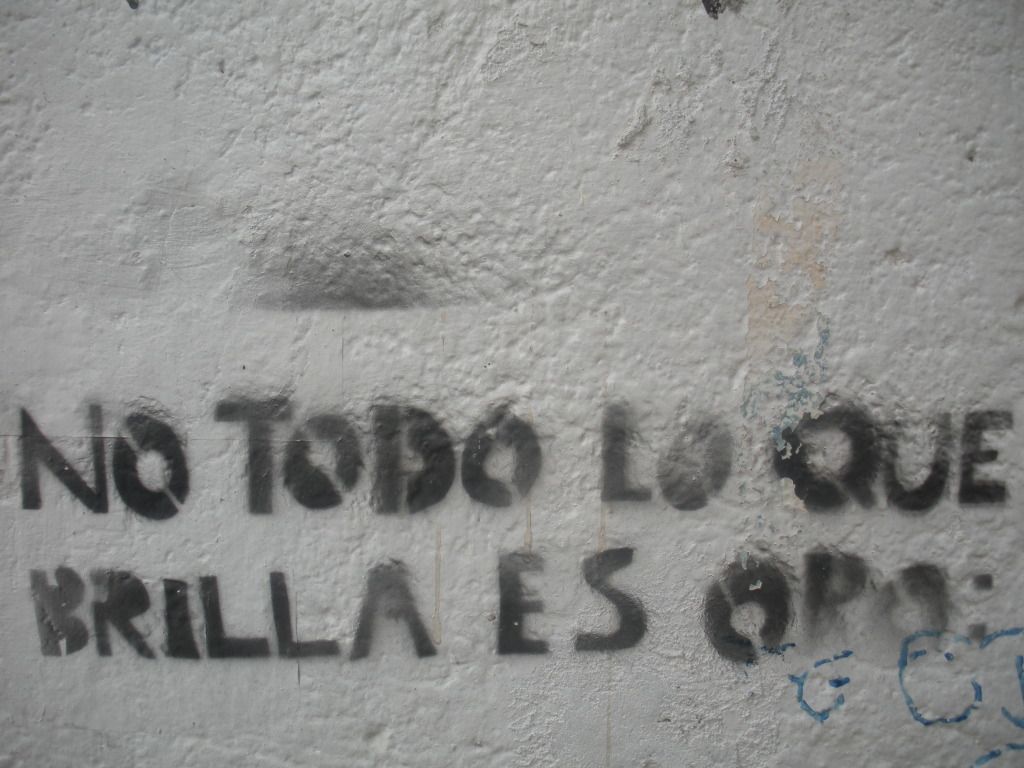
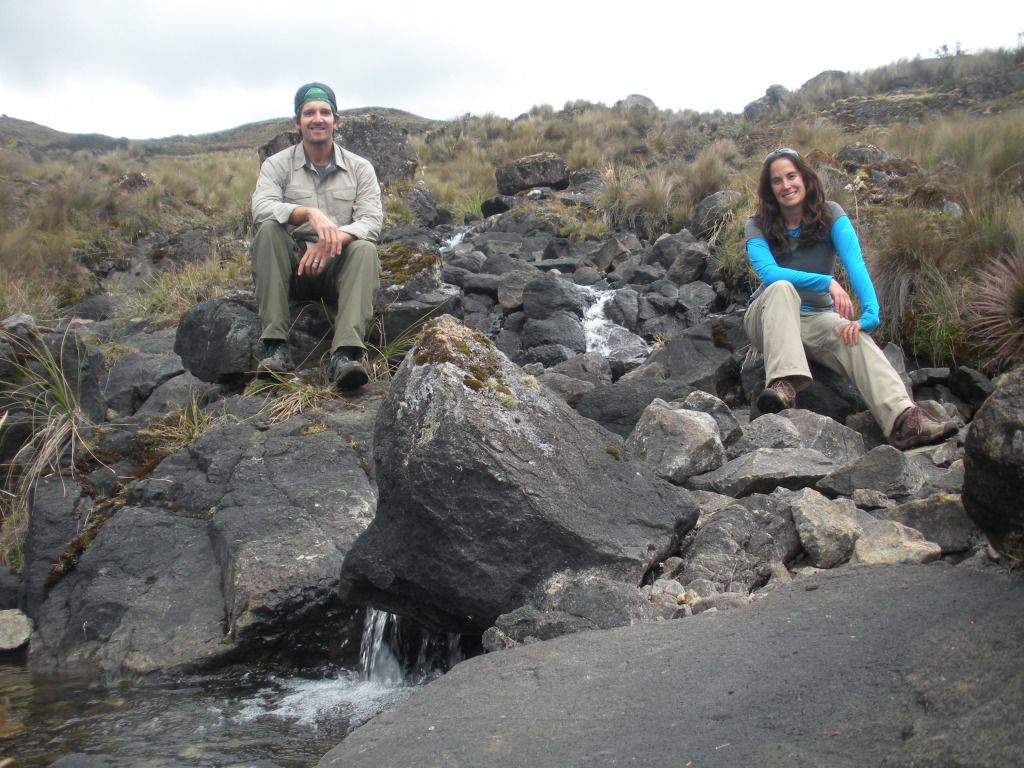
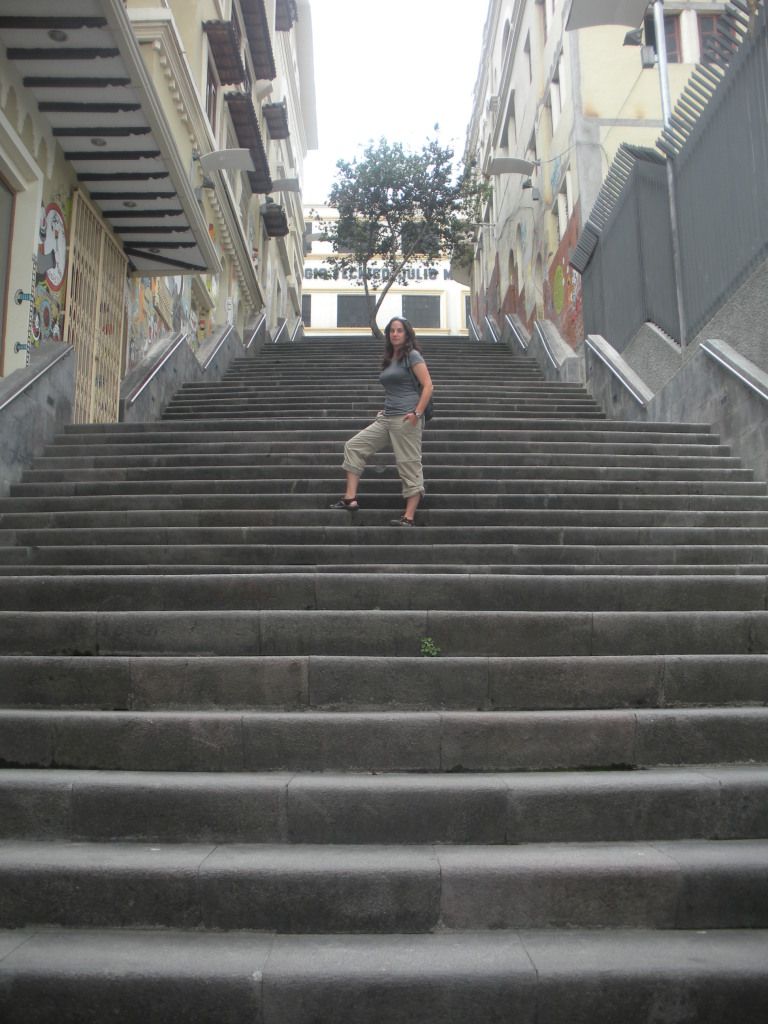

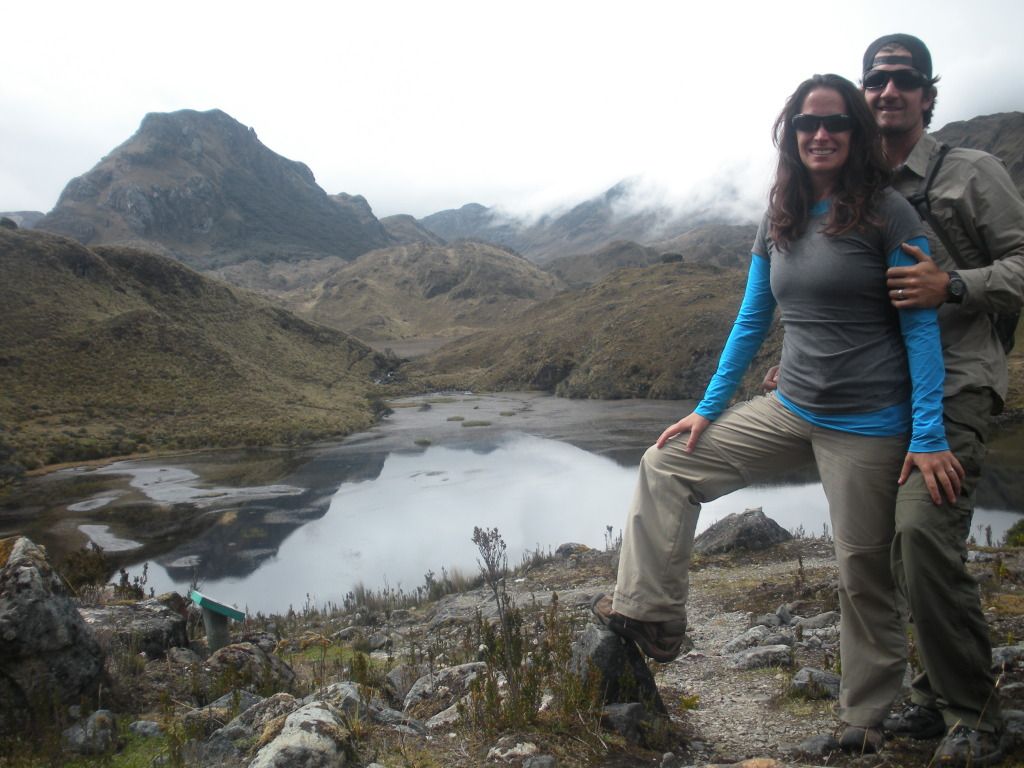
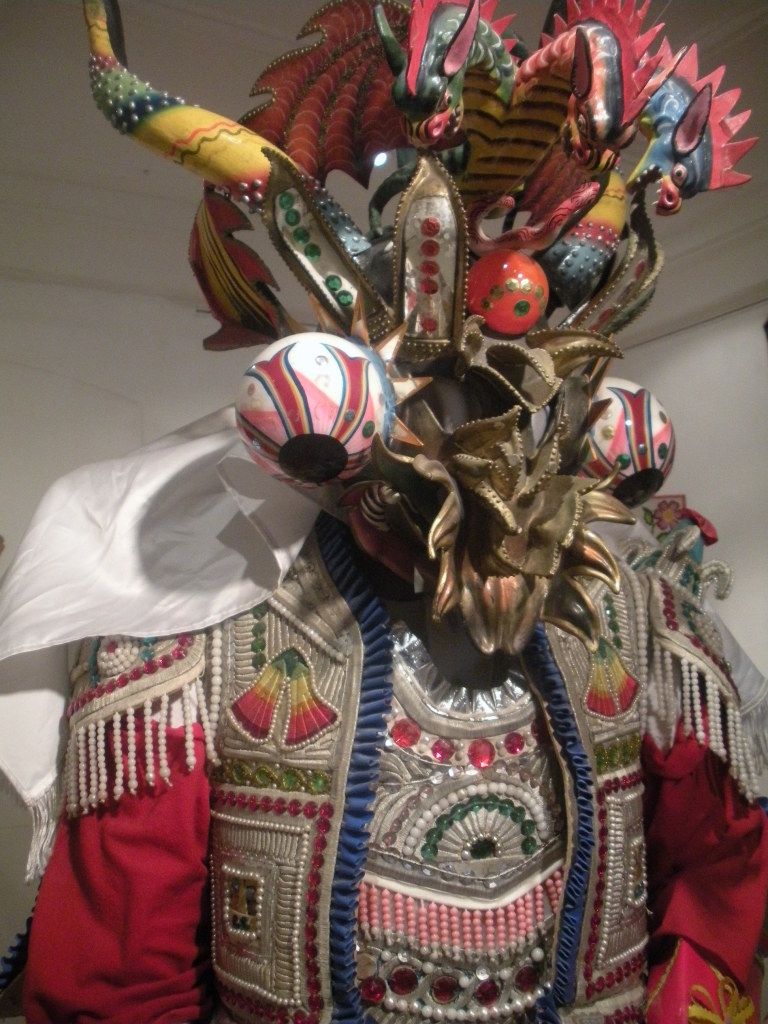
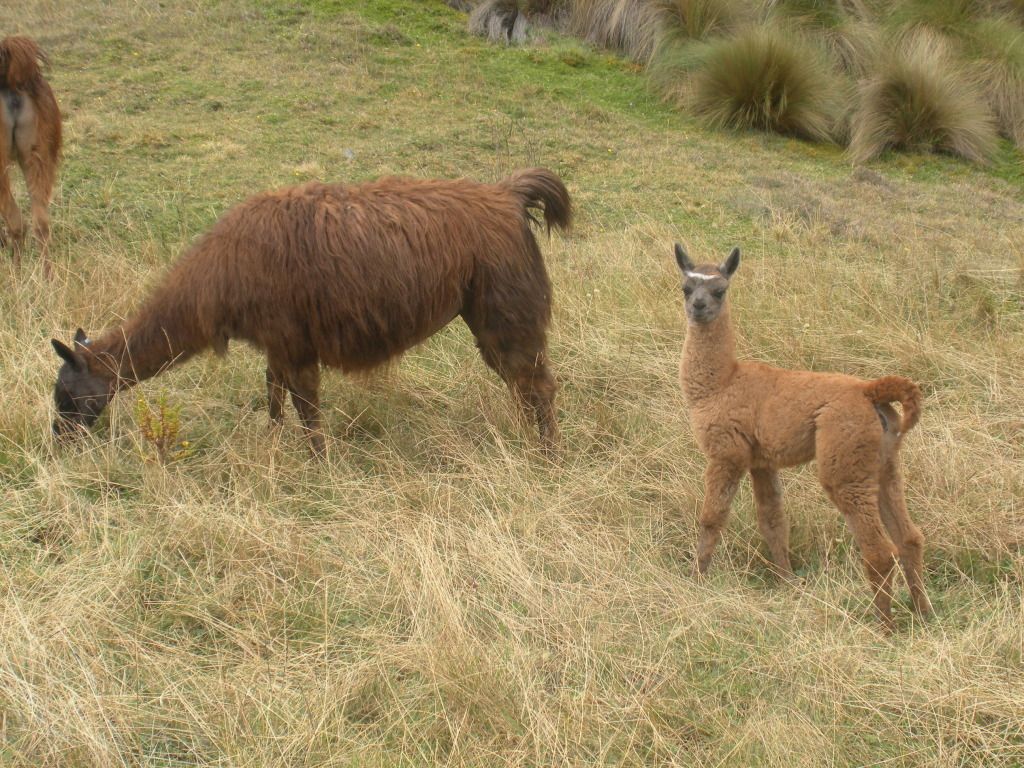

Comments
Post a Comment